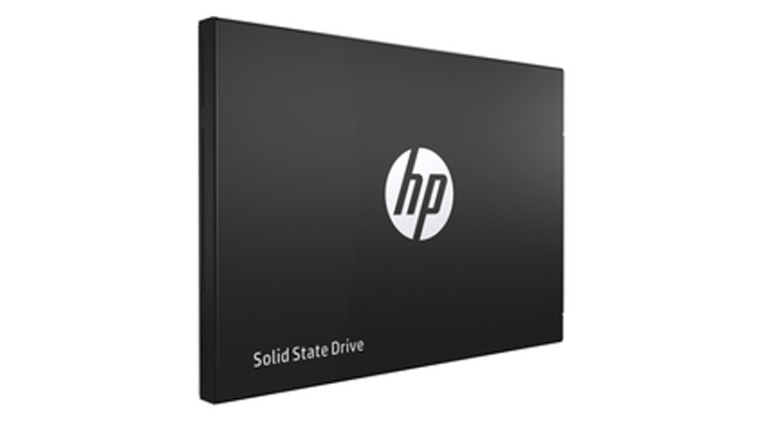HP S700 Pro SSD review

Last Updated on by Daniel Lawrence
HP is mainly known for its PCs and printers, but since those markets have struggled, it has also turned its attention to components, such as the HP S700 Pro SSD.
Apparently, this solid-state drive (SSD) values performance, durability, noise level, and energy efficiency – all key concerns for people who are looking for hard drives to install in professional environments where they need to run constantly.
HP S700 Pro SSD: Features
Thanks to Micron’s wear balancing algorithm and 3D NAND chips, the HP S700 Pro’s SSD is said to feature longer service life thanks to 3D NAND.
When it comes to a business or professional use case, a hard drive failure can be truly catastrophic, which is why HP is so eager to discuss the technology – and rigorous testing methods – it employs to ensure the HP S700 Pro SSD is as robust and secure as possible.
It also includes full tests at HP laboratories, and the use of High Order LDPC Error Correction for high-speed parallel decoding and real-time error correction. Moreover, the HP S700 Pro SSD has a very low power draw when the device it is installed in is in sleep mode – this is especially useful if you install it in a laptop, as the lower power draw will help keep the battery charged longer.
While in use, the metal body of the drive acts as a heat sink, keeping it cool. With an impressive MTBF (Mean Time Between Failures) of 2,000,000 hours, you can rest assured that the HPS700 Pro will be a reliable device to store your files on.
Despite the fact that the common SATA 3 port is showing signs of aging, HP promises 565MBps sequential read and 520MBps sequential write speeds. It won’t match the speed of M.2 SSDs, but it will still offer a considerable speed increase over traditional hard drives with moving parts, even if it can’t reach those targets.
Performance
Can the HP S700 Pro SSD achieve the speeds that HP promised? Yes, it did – and then some. Based on our CrystalDiskMark benchmark tests, which measure the drive’s speed, we measured 562.3MB/s sequential read speeds, which is roughly what HP promised.
In terms of sequential write speeds, HP achieved 509.9MB/s, about the same as what it promised.
According to ATTO’s disk benchmark, these results were backed up by read and write speeds of 562.8MB/s and 517.3MB/s, respectively. Normally, sequential read speeds are faster (since it’s easier to read than write data), but with the HP S700 Pro SSD, the speed difference is pretty small, so this is a consistent performer regardless of what you need it for.
Compared with the HP S700 Pro, the SanDisk Extreme Pro achieved read and write speeds of 547MB/s and 509MB/s, while the Samsung 850 Pro achieved 550MB/s and 525MB/s, respectively.
As a result, the HP S700 Pro stands out well among its peers.
During our real-world tests, the HP S700 Pro transferred a 1GB file in just 24.07 seconds – so moving large files should not be a problem. Our overall impression of the HP S700 Pro is positive, with its fast read and write speeds often exceeding those of its competitors.
What we liked
SSDs such as the HP S700 Pro are well designed and come with a number of features that prolong their life and make them safe and secure places to store files.
As a SATA 3 solid-state drive, it has very good read and write speeds, and the price is quite competitive.
We didn’t like
We didn’t really dislike anything about this drive. We haven’t tested it the fastest, but it performs very well and consistently.
| Pros | Cons |
| Dependable | SATA 3 remains a bottleneck |
| Great build quality | Not the fastest |
| Fast | |
| Affordable price |
Conclusions
The HP S700 Pro is an excellent drive if you need a reliable hard drive with plenty of features to ensure you won’t lose your important data if it fails, and fast – and consistent – speeds, no matter what you ask it to do.
The build quality and speeds of this computer are great, and the price is pretty reasonable for what you get.
Even though it isn’t the fastest SSD we’ve tried – and certainly doesn’t compare to the much more expensive M.2 drives coming out – if you’re in the market for a reliable SSD for your business, we highly recommend this one.


